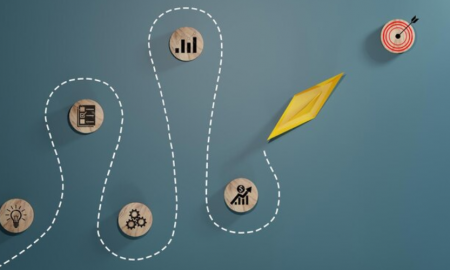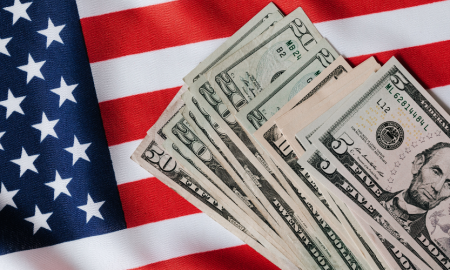
U.S. Credit Card Debts Hit Record High

As if the financial recession were not enough to be worried about this year, credit card debts across America have also hit record highs. According to a recent report from Experian, it was revealed that in June 2020, consumer credit card debt rose to $1 trillion. And in the last quarter of 2022 alone, it went up to $986 billion.

Pixabay / Pexels / In the last 3 years, credit card loans have been soaring in the U.S.
This has been a cause of concern for many American families as they attempt to manage their finances and prepare for an economic downturn.
What are Credit Card Loans?
Credit card loans are typically offered by banks or other financial institutions with the aim of providing consumers with access to funds when needed. Consumers can use these loans for a variety of purposes.
These include buying groceries, paying medical bills, or making home repairs. The loan is typically secured by the consumer’s credit card and must be paid back with interest within a set period of time.
Why Have Credit Card Debts Hit Record Highs?
The primary reason why credit card debts have hit record highs is due to the economic recession caused by the spread of the Covid-19 virus. Many people lost their jobs or had their wages reduced due to the pandemic which meant less money was available to them. This forced them to rely on credit cards as a source of short-term financing in order to make ends meet.

Pixabay / Pexels / Because of the COVID-19 pandemic and the looming recession, most Americans rely on credit card loans.
In addition, low-interest rates offered by banks have encouraged people to take out larger loans, further exacerbating the issue.
What are the Consequences of Credit Card Debt?
The consequences of credit card debt can be grave and long-lasting. Not only will it lead to a significant increase in interest payments due to missed payments or late fees, but it could also hurt your credit score if you are unable to make timely payments.
In the long run, this can lead to difficulty in obtaining new lines of credit or loans in the future as well as higher insurance premiums. Thus, the apparent short-term benefits of taking out a loan with a credit card can quickly turn into long-term debt.
What Can Be Done To Reduce Credit Card Debts?
There are various steps that individuals can take in order to reduce their credit card debts and prevent them from ballooning out of control. These include:
– Creating a budget to track your spending and income.
– Paying off high-interest rate debts first.
– Making more than the minimum payments each month.

Khwan / Pexels / To help reduce credit card loans, make sure to track the records of your income and spending.
– Negotiating with creditors to reduce interest rates or waive fees.
– Consolidating debt into one low monthly payment.
– Seeking professional help from a financial advisor or credit counseling services.
So, make sure to take action and pay down your credit card debt as soon as possible. Doing so will help you get out of debt. Along with that, it can help you improve your credit score, and save you money in the long run.
More in Loans & Mortgages
-
Cap Table Management Firm Pulley Gets Featured on Forbes’s Top 50 Fintech Startups
Pulley, a San Francisco-based cap table management firm, is swiftly gaining momentum, challenging industry giants and redefining the landscape for startups...
February 27, 2024 -
Redefining Your Path: 6 Essential Steps for Career Reengineering
So, you’re at a crossroads in your career, contemplating a change that could redefine your professional path or perhaps dreaming of...
February 19, 2024 -
Unsecured Loans: A Deep Dive
When financial needs arise, borrowing money can provide a solution. But which loan products make the most sense for your situation?...
February 16, 2024 -
How to Get Back to Work After a Career Break | 5 Tried & Tested Tips
Taking a career break can feel like you have hit the pause button on a movie. The world continues to move...
February 10, 2024 -
Small-Cap Stocks Could Be Your Biggest Win in 2024 – Here’s Why
In the stock market, where titans like the S&P 500 often steal the spotlight with their record-breaking performances, it is easy...
February 3, 2024 -
4 Things We Learned From the 2024 Golden Globes: A Night of Surprises and Inspirations
The 81st Golden Globes, held on January 7, 2024, was an event that transcended the boundaries of a typical awards ceremony....
January 26, 2024 -
The Path to Wealth: How 3 Productivity Tips Led Me to Multimillionaire Heights
In the pursuit of success, one often encounters the timeless question: How do successful individuals maintain such high levels of productivity?...
January 20, 2024 -
Exciting Career Horizons in 2024: Is Now Your Moment?
As we step into the vibrant landscape of 2024, a question bubbles up in the minds of many: “Is now the...
January 9, 2024 -
Here Are the Top 5 Nickel Stocks to Buy
As you venture into the intriguing world of investing, there is a shiny sector that deserves your attention: Nickel stocks. First...
December 31, 2023














You must be logged in to post a comment Login